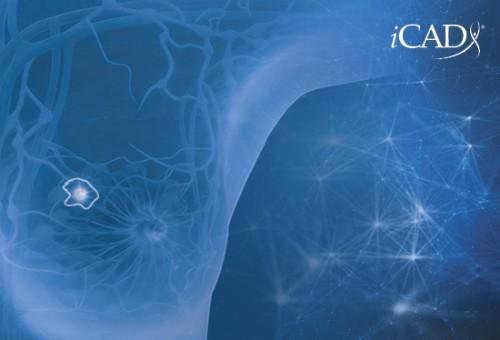
December 10, 2021 — iCAD, Inc., a global medical technology leader providing innovative cancer detection and therapy solutions, today announced new and real-world research demonstrating the value of ProFound AI for Digital Breast Tomosynthesis (DBT) was highlighted at the 107th Scientific Assembly and Annual Meeting of the Radiological Society of North America (RSNA), November 28 – December 2. The Company also showcased its portfolio of world-class breast health solutions, including the latest versions of ProFound AI Risk and PowerLook Density Assessment, at McCormick Place in Chicago.
“We are thrilled to have three important scientific presentations at RSNA this year, as these abstracts provide compelling new and real-world data regarding ProFound AI and the potential it offers to improve outcomes by supporting the earlier detection of breast cancer,” said Stacey Stevens, President of iCAD, Inc. “Our efforts to empower clinicians with deep-learning technologies to optimize efficiency, confidence, and patient outcomes are demonstrated by the unrivaled specificity of our breast imaging AI solutions that are transforming breast cancer detection and risk-based personalized screening.”
Principal investigator Emily F. Conant, M.D., professor and chief, Division of Breast Imaging at the Hospital of the University of Pennsylvania Medical Center, will discuss findings from an observational study evaluating ProFound AI and the impact of race on the software’s performance and Case Scores.
“Our research presented at RSNA this year adds to the growing body of evidence supporting the importance of AI in breast screening and women’s health,” said Conant. “The findings from our study suggest that AI can be a valuable tool to help clinicians further personalize and tailor breast cancer screening regimens for women, which may help to detect cancers earlier, when they may be more easily treated.”
“ProFound AI delivers a level of precision, speed and efficacy that is unrivaled in the industry. With more than 2,000 licenses sold worldwide, ProFound AI offers multi-vendor compatibility and seamlessly integrates into the diagnostic process,” continued Stevens. “Moreover, ProFound AI is now compatible with Hologic Clarity HD, further demonstrating our commitment to integrate with all major mammography system vendors and enterprise-wide viewing applications.”
The Company’s full suite of breast health solutions includes the latest generation of ProFound AI for DBT, the first AI cancer detection software for DBT to be cleared by the FDA, as well as ProFound AI for 2D Mammography, the latest generation of ProFound AI Risk for 2D and 3D mammography, and PowerLook Density Assessment.
ProFound AI for DBT is proven to curtail workflow challenges substantially by reducing radiologists’ reading time by 52.7 percent, thereby reducing by half the amount of time it takes radiologists to read 3D mammography datasets. Additionally, the platform is clinically proven to improve radiologists’ sensitivity by 8 percent and reduce unnecessary patient recall rates by 7.2 percent.[i]
The latest generation of ProFound AI Risk offers the ability to calculate a short-term risk estimation for 3D mammography, with greater accuracy compared to both the previous version of the risk software based on 2D mammography and traditionally used risk models. Expanded features include the ability to calculate short-term (one-, two- or three-year) absolute risk based on either 2D or 3D mammography images. Specifically designed to factor in racial and ethnic backgrounds, ProFound AI Risk also factors in clinically relevant global screening guidelines and more than 15 country incidence and mortality reference tables, for alignment with that country’s general population.
The latest version of PowerLook Density Assessment software on the new PowerLook 10 platform enables clinicians to automate breast density assessment accurately and reliably,[ii] removing the challenges of subjectivity. It identifies the patient’s anatomy, segments the breast, then measures adipose and fibroglandular tissue and its dispersion to determine the density category in alignment with BI-RADS 5th Edition lexicon. Its consistent scores bring confident density assessment and standardized stratification in density-based breast cancer screening and reporting.
For more information: www.icadmed.com
Additional RSNA21 information can be found here.
[i] Conant, E et al. (2019). Improving Accuracy and Efficiency with Concurrent Use of Artificial Intelligence for Digital Breast Tomosynthesis. Radiology: Artificial Intelligence. 1 (4). Accessed via https://pubs.rsna.org/doi/10.1148/ryai.2019180096
[ii] iCAD data on file


 December 09, 2025
December 09, 2025 









